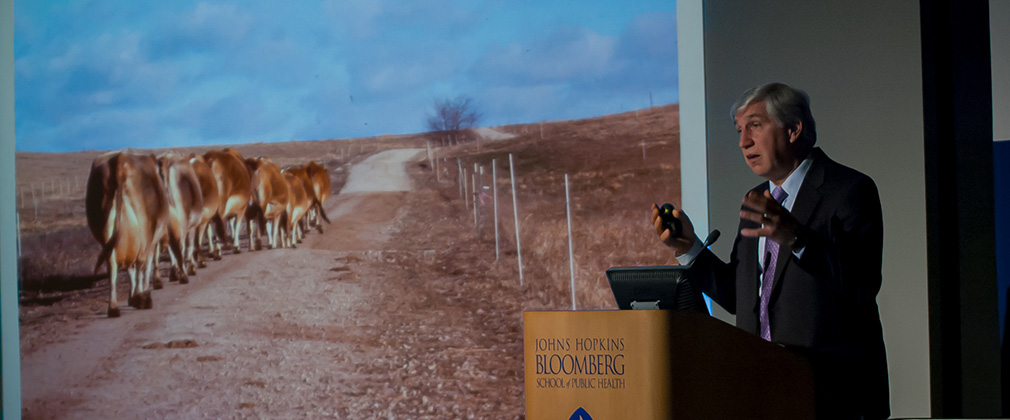Energy and Soil: Q&A with Francis Thicke
Q & A with Francis Thicke
A couple weeks ago, Francis Thicke, PhD, visited the Center for a Livable Future, taking a short break from his 80-cow, grass-based, organic dairy near Fairfield, Iowa. Thicke is a man of many talents. In addition to farming, he’s a soil scientist who’s served time in Washington with the USDA. (He also ran for Iowa State Secretary of Agriculture.) A consummate tinkerer, Thicke shared photos of ingenious inventions that can power agriculture and “keep the wealth on the farm.” He drives a lithium ion battery–powered Prius himself, getting “about 80 to 100 miles per gallons if going slow, and 50 to 60 on the highway, depending on how heavy my foot is.”
How can farms become more resilient? Self-sufficient? Energy-efficient? The answer to all these questions is “ecological agriculture.” Check out these clips for highlights from the energy conversation, the scary soil conversation, and bit of cheer about the power that we, the consumers, wield.
Creating Energy Services
“I’ve calculated that for every gallon of ethanol made from corn, we lose two gallons of soil to erosion…. Now what if instead we could use perennial crops, like prairie plants, and make a fuel out of that, at the local scale to power the farm?”
Soil Erosion in Iowa
“We’re losing soil at ten times the rate it can regenerate. Obviously, it’s not sustainable.”
The Power of Consumer Demand
“A lot of consumers really didn’t want to have milk from cows injected with bovine growth hormone, so consumer groups told the grocery sectors, We don’t want to buy that milk, and the groceries turned around and told the farmers to stop using it.”
